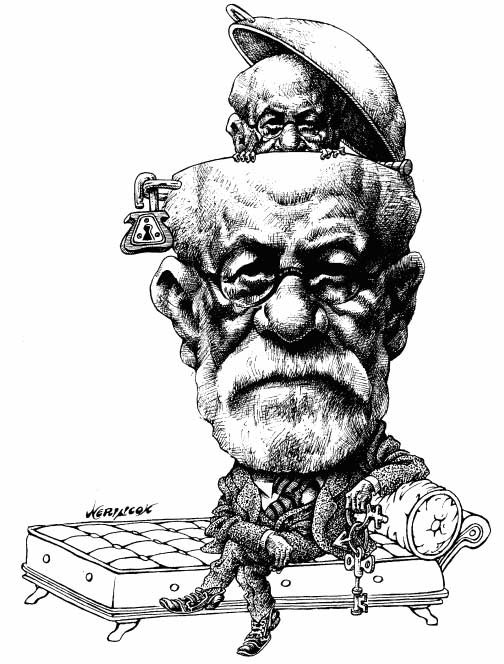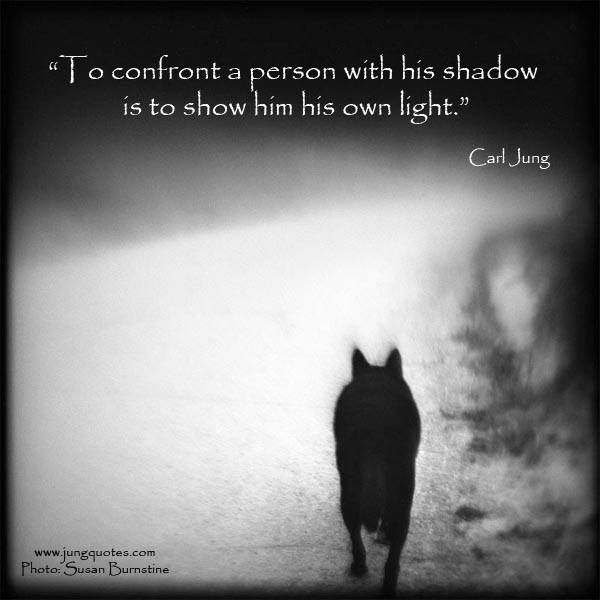Getting Yourself Out Of The Way: The Self-Vigilant Coach – Part Two – Projection In Health & Wellness Coaching

Our previous blog post: Getting Yourself Out Of The Way: The Self-Vigilant Coach – Part One (https://wp.me/pUi2y-mu) explored the many ways in which the coach can interfere in the coaching process and “get in the way” of the client’s own coaching work. Our own agendas, attitudes, beliefs, prejudices, projections and unfinished emotional business can all impede the coaching process. In this second part of the two-part series we’ll examine the complex concept of projection in coaching.
Projection
Another pitfall for the coach to be aware of is our tendency to project onto other people emotions that are really our own. A classic defense mechanism, psychological projection is when we attribute to others feelings of our own that we find unacceptable. The most common example is when we have unwanted feelings of anger and instead see hostile and aggressive qualities in the behavior and affect of others.
A broader understanding of projection, and a less pathological one, is that we project onto others not only negative qualities (anger, guilt, shame, etc.), but positive ones as well. These are positive qualities that we do not believe that we fully possess, but we ascribe them to the other person (successfulness, popularity, self-confidence, etc.). We can also include in projection the type of hopes, beliefs and dreams we have. We may want to believe that our client feels as passionately about exercise or meditating as we do! We may proceed with our coaching operating as though our client is fully on board with our wellness prescription for them. Conversely, as we have struggled for years with weight loss or smoking cessation, we project the same degree of difficulty onto our client’s experience, when, perhaps for them, that challenge is nowhere near as great. We fall into the trap of making assumptions, believing that other see the world just as we do.
We can also project our prejudices. If we come from a blue-collar working-class upbringing, we may think that our wealthy upper-class client has an easy life and knows little of heartache and struggle. We may withhold our empathy when it is really needed. We may completely underestimate the potential of our client because of their social status, gender, race or ethnicity and not treat them as being “naturally creative, resourceful and whole.” (http://www.coactive.com/learning-hub/fundamentals/res/FUN-Topics/FUN-The-Co-Active-Model.pdf)
If It Were Me…
A basic human tendency is to attempt to understand others by asking ourselves How would I feel/What would I do, if I was experiencing that? We put ourselves in their situation, and instead of going into a place of empathic understanding, we project our own feelings, conclusions, solutions onto the other person. We “know” what they ought to do! Perhaps our own work history includes supervisors who were bullies. Without realizing it we may hear our client’s story of conflict with their team leader and translate what we hear into a story of brutal abuse. We may then operate on the feelings this generates and steer the client towards taking extreme action to deal with a rather mild situation. For the client it was what we might call at one-dollar item, but we project a situation worth $100.00 plus change!

Our Own “Stuff”
Coaches may also project onto their clients the struggles and growth processes that they are currently engaged in and faced with. The coach who is exploring healing their own family of origin issues may see a need for this in many of the clients that they see. They may mistakenly think that the therapeutic process that is helping them so much is the panacea for all clients. They may start bleeding the techniques of their favorite self-help therapy book into the coaching that they do. The self-deception is that they may still think that they are doing coaching.
Perhaps the most disastrous type of interactions occurs when we project in such a way that we relate to another person as though they were someone else. Perhaps you’ve had this happen to you in your own life. Someone you’ve met recently keeps ascribing to you qualities that you exhibit very little of. They see you as self-centered, a braggart, trying to impress others, when all you did was share a couple of tidbits of what you knew about some subject. The problem is, you remind them of their brother, sister, ex-partner, former employer, second grade teacher, college roommate, army buddy, etc. who continually played the know-it-all role. Now all of the terrible qualities of that other person get projected onto you whether you deserve them or not!
Could the client who seems to bother us in ways that we find hard to explain be the unfortunate recipient of our projection? Do they remind us of someone else; a personal relationship from our past, or perhaps even a former client who struggled with the same issues? Do we begin coaching as though we expect this client to struggle the same way our other client did? Are we bringing our own unfinished emotional business into the coaching relationship?
Client Projections
When we are on the receiving end of our client’s projections, how do we handle it? A client who treats us as the high and mighty expert may cause us to overcompensate by being so informal and friendly that we now come across as a “buddy” or “pal” instead of a professional coach. The client who projects a parental role onto us may bring out our overly professional, even stiff and impersonal side. Such a client may become unexplainably resistant to even the best form of coaching accountability. The coach who is working with a client from a company who incentivizes employees to seek coaching to receive by promising a discount on health insurance, etc., may find their client unusually hostile. Such a client may be projecting their own issues around authority onto the innocent coach. The list goes on.

Minimizing Projection
The central problem with our own projection is that it is operating outside of our awareness. We make our assumptions without even realizing them. We slip into feeling that we do know best for our client, and on and on. Let’s look at ways to minimize the occurrence of our projection.
• Coach with a sense of self-monitoring. Check in with your own affective and bodily sensations and determine what they are telling us.
• Set clear boundaries and expectations for the coaching relationship as you create the coaching alliance.
• Draw a clear distinction between coaching and therapy. This includes operating from a coaching mindset, not an analytical, diagnostic mindset in our relationship with our client.
• Be vigilant for parental feelings that arise where you believe that you know what is best for your client
• Reflect upon the client who brings out unusual feelings in you that are hard to explain or understand. Listen to recordings and examine your responses to your client.
• When client reactions to coaching interactions seems extreme, consider what else might be going on that has nothing to do with the here-and-now coaching experience. Inquire gently “Does this remind you of any other experiences you’ve had?” “What’s this coaching like for you? Is it similar to anything else you’ve done?”
• Seek out mentoring/supervision to explore puzzling client relationships that “don’t feel right”.
• Do your own work! Your own personal journey of personal growth and healing may need some attention if it is leaking into your coaching work. Don’t let your own “unfinished business”, get in the way!
 Learn more about projection in coaching and how to stay out of your client’s way at the Real Balance Global Wellness YouTube Channel —
Learn more about projection in coaching and how to stay out of your client’s way at the Real Balance Global Wellness YouTube Channel —
Getting Yourself Out of the Way - Mastery for the Wellness Coach with Dr. Michael Arloski https://www.youtube.com/channel/UCp-aNFdbWwnX38fdLgr52eg?view_as=subscriber








Only registered and logged in readers can leave comments.